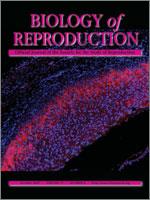Because some animals and human beings potentially engage in sexual activity at any day of the menstrual cycle, this may cause fertilization of postovulatory aged oocytes, which result in decreased potential of embryo development and longevity of offspring. To investigate the involvement of histone acetylation in the function of postovulatory aging, we examined the changes of histone acetylation by immunostaining with specific antibodies against various acetylated lysines on histones H3 and H4. We found that the acetylation levels of lysine 14 on histone H3 and lysines 8 and 12 on histone H4 in mouse oocytes were gradually increased during in vivo and in vitro postovulatory aging. Furthermore, the acetylation levels on these sites were markedly decreased or increased when the process of postovulatory aging was artificially delayed or accelerated, respectively. These results indicated that the gradual acetylation on some lysines of histones H3 and H4 is one of the phenomena in the process of postovulatory aging. Moreover, raising the level of histone acetylation by trichostatin A can accelerate the progression of postovulatory aging, suggesting that alteration of the acetylation on histones H3 and H4 can affect the progression of postovulatory aging in mouse oocytes.
How to translate text using browser tools
1 October 2007
Changes in Histone Acetylation During Postovulatory Aging of Mouse Oocyte
Jun-Cheng Huang,
Li-Ying Yan,
Zi-Li Lei,
Yi-Liang Miao,
Li-Hong Shi,
Ji-Wen Yang,
Qiang Wang,
Ying-Chun Ouyang,
Qing-Yuan Sun,
Da-Yuan Chen
ACCESS THE FULL ARTICLE

Biology of Reproduction
Vol. 77 • No. 4
October 2007
Vol. 77 • No. 4
October 2007
aging,
gamete biology
Histone acetylation
Mouse
oocyte development
postovulatory aging
trichostatin A




